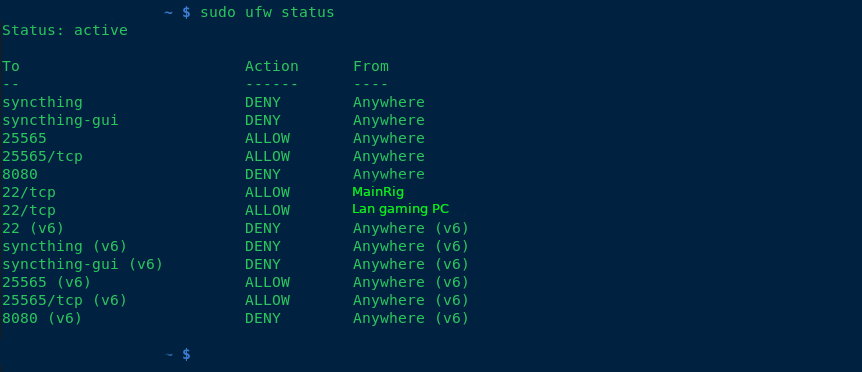So i’ve been hosting a modded Minecraft server for my friends and me on weekends. While it’s been a blast, I’ve noticed that our current setup using LAN has its limitations. My friends have been eagerly waiting for their next “fix” (i.e., when they can get back online), and I’ve been replying with a consistent answer: this Friday.
However, exploring cloud providers to spin up a replica of my beloved “Dog Town” Server was a costly endeavor, at least for a setup that’s close to my current configuration. As a result, I’ve turned my attention to self-hosting a Minecraft server on my local network and configuring port forwarding.
To harden my server, I’ve implemented the following measures:
- Added ufw (Uncomplicated Firewall) for enhanced security.
- Blocked all SSH connections except for the IP addresses of my main PC and LAN rig.
- Enabled SSH public key authentication only.
- Rebuilt all packages using a hardened GCC compiler.
- Disabled root access via
/etc/passwd. - Created two users: one with sudo privileges, allowing full access; the other with limited permissions to run a specific script (
./run.sh) for starting the server.
Additionally, I’ve set up a fcron job (a job scheduler) as disabled root, which synchronizes my Minecraft server with four folders at the following intervals: 1 hour, 30 minutes, 10 minutes, and 1 day. This ensures that any mods we use are properly synced in case of issues.

any suggestions of making the computer any more secure, aswell as backup solutions? thanks!
–added note, what hostnames do you guys call your servers? I used my favorite band albums and singles for hostnames.


Totally agree with the mentions of Wireguard and Tailscale. They make this super easy. Have done exactly this myself before, for the same use case.
However at the time, i had to change something in the server-properties config file in order for it to work properly. Minecraft servers still authenticate users when hosting yourself (afaik). This however isnt possible over a mesh netowrk like wireguard/tailscale. I simply had to change a boolean value of the line called something like, server-online, or online-mode…
Best of luck!
i think i may go with wire guard, do you know of any good videos or tutorials? i found this, https://www.digitalocean.com/community/tutorials/how-to-set-up-wireguard-on-ubuntu-20-04
I recommend using a docker container, they make the whole thing painless and easy.
I think the Linuxserver.io one is what I used from memory.